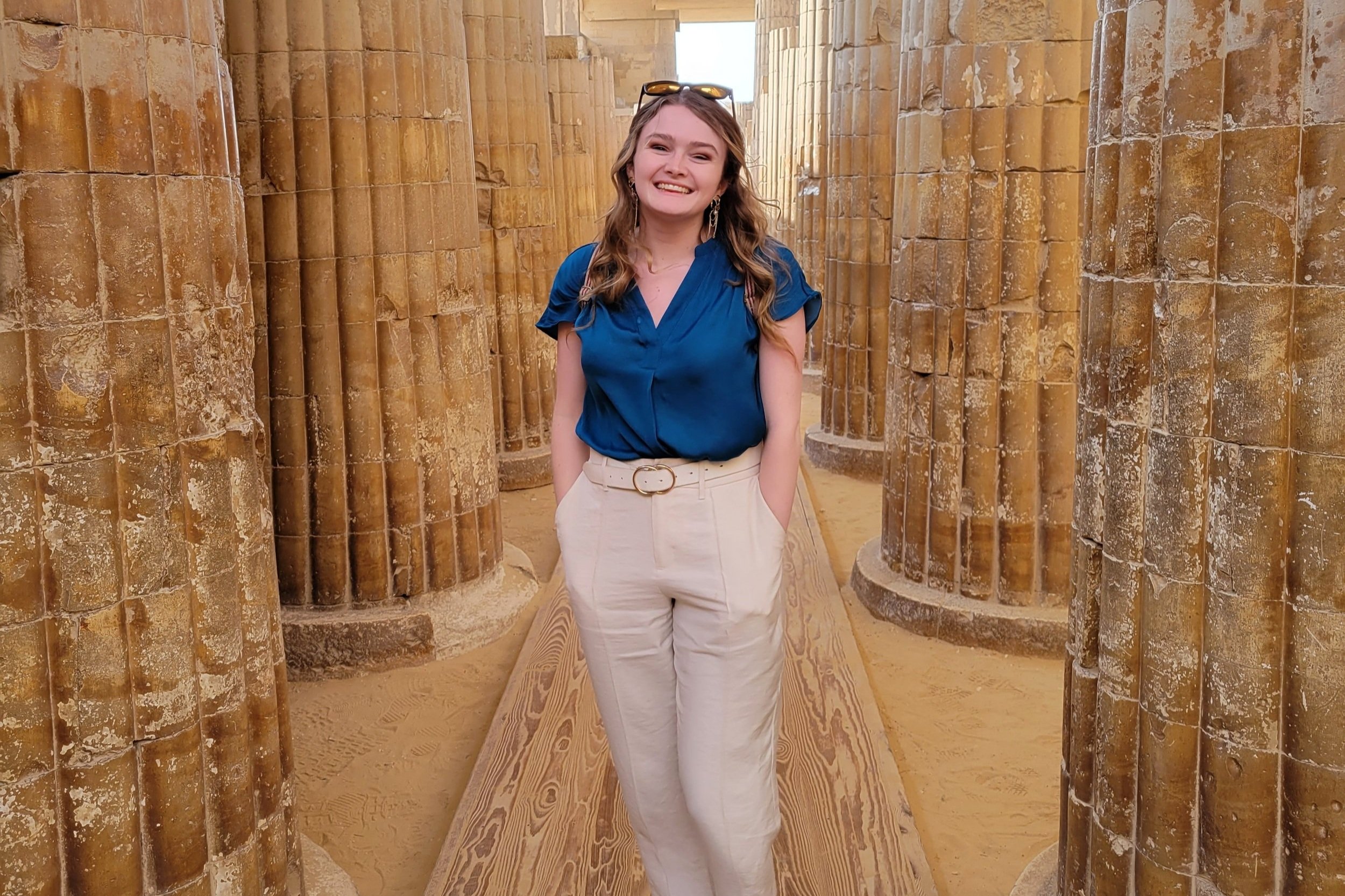Insights on Egypt: Ancient and Modern
This past January, my parents and I visited the place they had met 25 years prior: Cairo, Egypt. While all my previous travels have offered insights into the country I was visiting, this trip in particular allowed me to see firsthand what I had learned in History and Government classes at the College of William and Mary. Egypt has been a vibrant place for over 5,000 years, and I was able to experience the brilliance of both ancient and modern Egyptians.
INDIA TURNER // FLAT HAT MAGAZINE
Growing up, my house was full of Egyptian crafts, from woven bowls and tapestries to mudmen figurines and Wissa Wassef pottery. My parents met in Cairo 25 years ago while working abroad, and they always spoke of Egypt with the utmost fondness. They had sailed feluccas and traveled the country, eating baba ganoush and drinking Stella Local with their Egyptian friends. So many of my parents’ best stories originated from their time in Egypt. Maybe that was what sparked my interest in the region, subconsciously.
We were supposed to go to Egypt in March 2020, but when COVID-19 hit, we delayed the trip. We were finally able to visit in January 2023. Traveling there was particularly special not only because my parents had lived there but also because of the specific courses I have taken at the College. Not only am I particularly interested in (and have taken classes on) the Middle East from a cultural and political standpoint, but I also had taken Deciphering Ancient Egypt I in the Fall of 2022, where I got to learn both about Ancient Egyptian culture and hieroglyphs. While in Egypt, I learned both about current political dilemmas from Egyptians and about Egypt’s past from ancient monuments — I’ve never had my travels connect so deeply with my academic interests, and I benefited greatly from this connection.
We spent two weeks traveling from Cairo down through Luxor, Thebes, and Aswan. We traveled to mosques, Ancient Egyptian temples, and places my parents encountered 20 years prior. I was able to read passages written by people who lived over 4,000 years ago and some of the earliest preserved human writings.
INDIA TURNER // FLAT HAT MAGAZINE
Perhaps the most striking part of the trip was the number of people we ran into that my parents remembered, even two decades after they had lived there. When we went to the Wissa Wassef Arts Center, we met the woman who had crafted the ceramic bowls my parents bought 20 years earlier. We also met the woman who spent months creating a rug that now hangs in our house. She now designs even more elaborate and beautiful tapestries than the one she had made for my parents when she was a young girl. And when we visited my mom’s old apartment building, the same bawab (house/gatekeeper) was there, now fully grown. He and my mom talked about people who had lived in the building when they both resided there.
My travels have also aided me in my classes — traveling to Egypt, after all, gave me the opportunity to read passages in tombs and see statues that we had discussed in class. The most surreal experience was when my Deciphering Ancient Egypt II class did a virtual tour of a pharaoh’s tomb, and I realized that I had actually visited that tomb in real life. All the sites we have since discussed are ones that I visited only a couple of months ago.
The people I spoke to in Egypt also helped me gain a better understanding of the country’s current political landscape. From tour guides, I was able to learn about interactions between Islam and Christianity in the country as well as gain insight into the factors that shape Egypt’s culture and politics today. Instead of reading about economic inequality, I saw people transporting goods by donkey next to millionaires in tangerine-colored Lamborghinis. I saw “Trash City,” full of individuals making a living solely off of selling items that had been thrown away, while on the other side of town, grandiose mansions loomed.
Instead of learning about the effects of the Arab Spring second-hand like in class, I saw the prison where political prisoners were kept. I witnessed firsthand how security has changed post-Arab Spring, from the watchtowers and security checks to the police outposts that we encountered every five minutes or so.
While my courses gave me insight into Egypt’s culture and politics, these insights were never quite as clear as they were when I visited. Between my parents’ time living there, speaking with tour guides, and my classes at the College, I have been able to learn so much about this incredible country as well as gain a greater appreciation for it as the place where my parents met.
INDIA TURNER // FLAT HAT MAGAZINE



